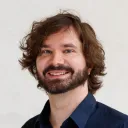

bwHPC-S5 - Scientific Simulation and Storage Support Services
Tuesday, May 31, 2022 9:00 AM to 6:30 PM · 9 hr. 30 min. (Europe/Berlin)
Foyer 3 + H - Ground Floor
HPC Workflows
Information
To address the scientific computing and the rising demand for processing large volumes of data in research, development and education, a new state-wide strategy "bwHPC" for High Performance Computing (HPC) has been implemented for the state of Baden-Württemberg, Germany. This concept not only allows for the advancement of HPC at all tiers, but also for Data Intensive Computing (DIC) and associated Large Scale Scientific Data Management (LS2DM), thereby offering a single point of view on all services for users.
The accompanying state-wide project "bwHPC-S5"[1] provides federated support for the "bwHPC" users and coordinates all associated provisions, including development of policies and services. As the connecting body between scientists and HPC systems, "bwHPC-S5" has proven to create synergies for the development of state-wide user support. The implementation of professional competence centers guarantees the support expertise required to embed the scientific communities into the HPC, DIC and LS2DM world and to increase efficiency and effectiveness in utilizing both, the compute and storage resources, by optimizing workflows as well as performance and scalability of applications.
"bwHPC-S5" extends the federated services established in previous projects to include the acquisition, processing, storage and archiving of large scientific datasets. A constantly refined and coordinated training program for the topics HPC, DIC and LS2DM complements the user support services. Furthermore the project assesses and adapts new technologies in close cooperation with users to allow fast incorporation into existing infrastructures.
[1] https://www.bwhpc.de
Contributors:
[1] https://www.bwhpc.de
Contributors:
- Robert Barthel (Karlsruhe Institute of Technology (KIT), Germany)
- Isa Karabulut (University of Ulm)
- Jürgen Salk (University of Ulm)
Format
On-site

